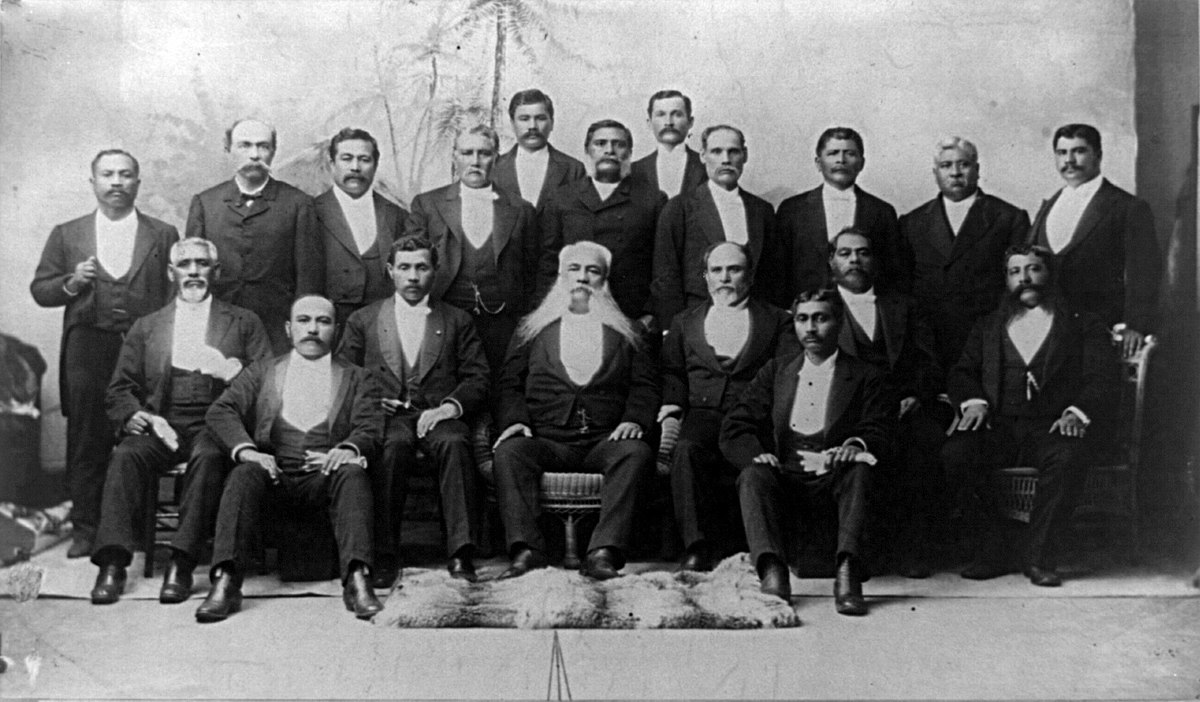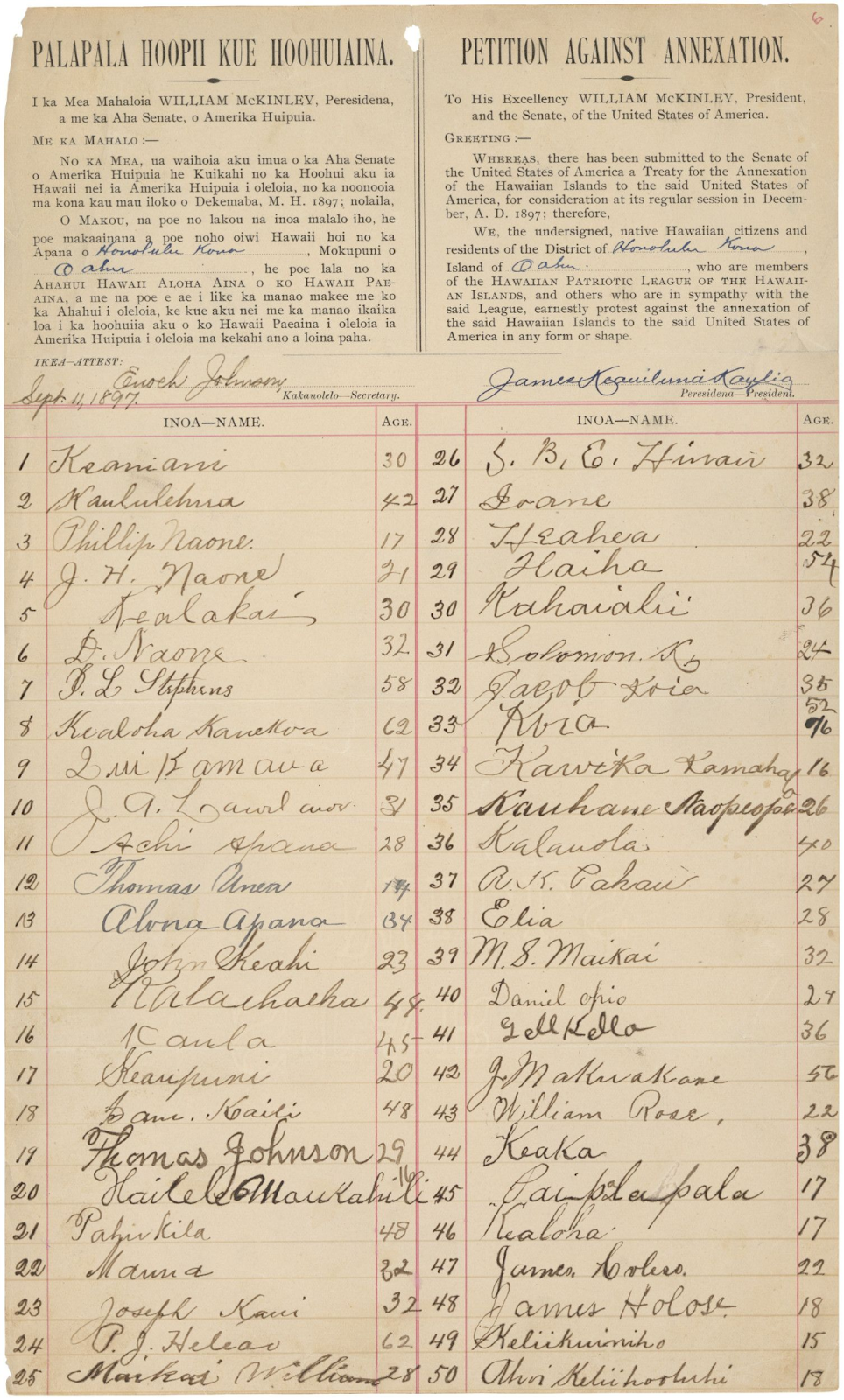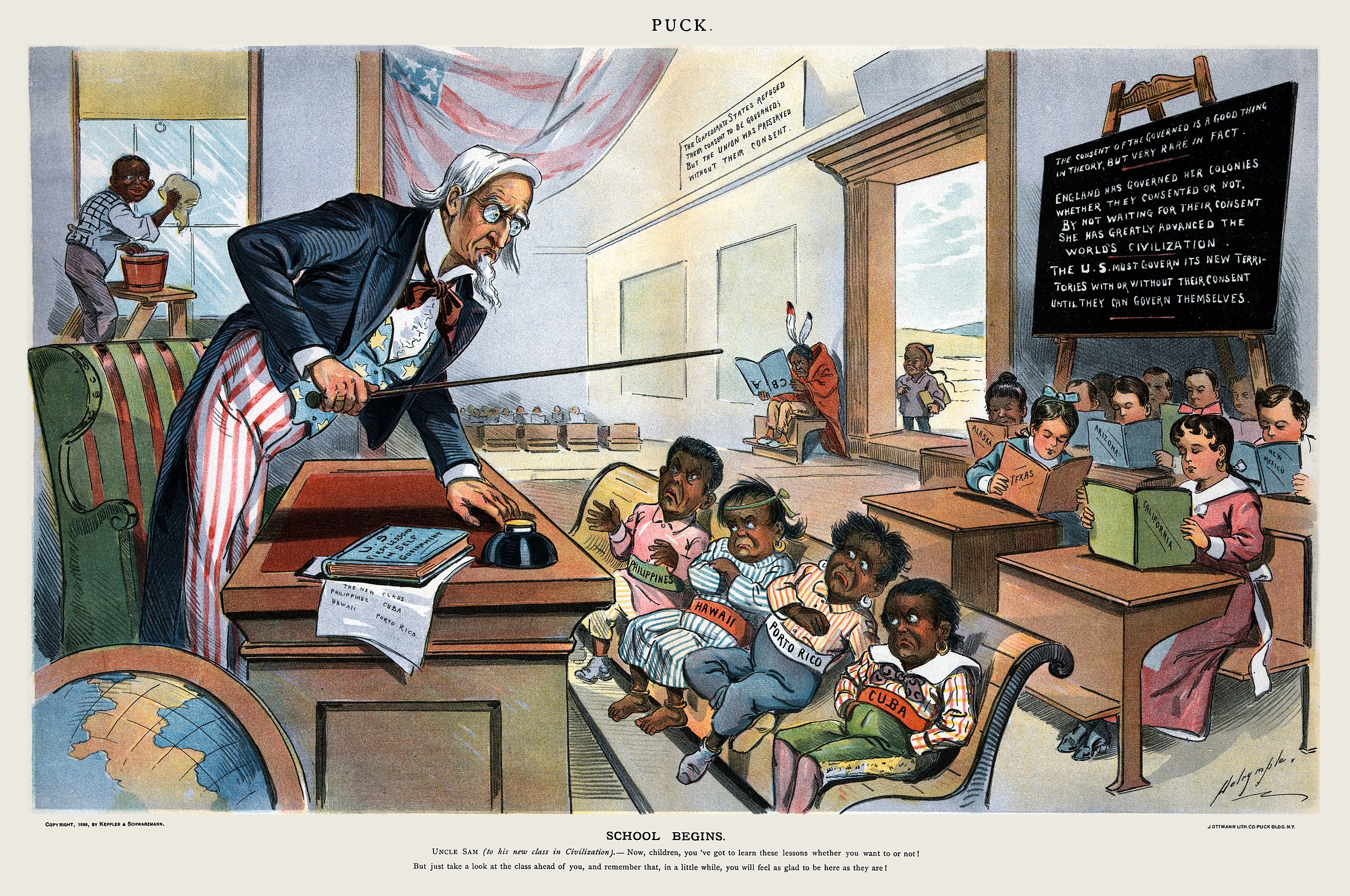Race
Racism played a crucial role in the annexation of Hawaiʻi. Natives feared that annexation would lead to loss of their culture. Some mainland white Americans feared annexation would threaten white dominance in the US. Other mainland white Americans supported annexation, believing it would be an opportunity to “civilize” nonwhite Hawaiians.
Native Hawaiian Opposition
The Hawaiian monarchy was the last channel of political power for native Hawaiians. More than 90% of them signed the Kūʻē Petitions, opposing annexation. The effort nearly worked. The petitions prevented the Senate from passing annexation, but President McKinley ultimately pushed annexation through a joint session of Congress. Native resistance continued, through the preservation of language and culture.

"Hui Aloha ʻĀina o Na Kane [Hawaiian Patriotic League for Men]," 1893, University of Hawaiʻi, Mānoa
"The population of [the Hawaiian Islands] not exceeding 5 percent are white and the remainder chiefly semi-savages and Orientals can never be fully assimilated with Americans nor be submissive to the rule of constitutional law."
~ Hermann von Holst, historian
Assimilationism
Most annexationists argued that, while nonwhite Native Hawaiians had racial “flaws,” that could be remedied by white American “civilization.” Native Hawaiians were stereotyped as primitive; they could be “shaped” into model citizens. This “white savior” form of white supremacy was subversive and harmful.
"There is evident need of the instrumentality of the genuine missionaries to remove the selfishness from the hearts of these people and make them more Christian-like."
~ Representative John McDowell, Ohio

Page of the Kūʻē Petitions, 1897, National Archives
White American Racism
Many white Americans worried that annexation would draw nonwhite people to the US, threatening white political and economic dominance. Political figures stressed racist stereotypes and warned that "Americanizing" Asians and native Hawaiians would be dangerous to white Americans. This reflected the racist “Yellow Peril” policy.
"I am opposed to starting a Territorial government in Hawaii with four Kanaka [Hawaiian] votes to every single vote of an intelligent white man."
~ Representative Ebenezer Hill, Connecticut

"School Begins," 1899, Library of Congress